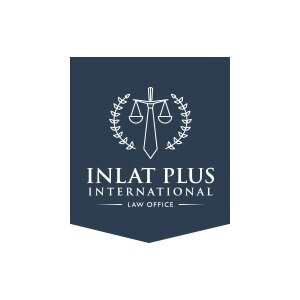Best Child Custody Lawyers in Riga
Share your needs with us, get contacted by law firms.
Free. Takes 2 min.
Free Guide to Hiring a Family Lawyer
List of the best lawyers in Riga, Latvia
About Child Custody Law in Riga, Latvia
In Riga, Latvia, child custody laws are established to ensure the well-being and development of the child after the parents' separation or divorce. The primary consideration in any custody case is the best interests of the child. Legal rulings concerning child custody are governed by Latvian civil law, specifically by the Family Law Act. The Latvian court system has the authority to determine child custody arrangements, which can include sole custody to one parent or joint custody between both parents. Decisions are made based on various factors, including the child's relationship with each parent, their individual ability to meet the child's needs, and the child's own wishes if they are considered mature enough to express them.
Why You May Need a Lawyer
There are several situations in which you might require legal assistance related to child custody in Riga, Latvia. If the parents are going through a divorce and cannot agree on the terms of custody, a lawyer can help negotiate and potentially avoid a lengthy court battle. Additionally, in cases where there is a need for enforcing or changing existing custody arrangements or when one parent wants to relocate with the child, a lawyer's guidance is crucial. Legal representation is also important in protecting one's parental rights, especially if there are concerns about the child's welfare. Lastly, a lawyer can assist with navigating international child custody issues if one parent lives outside Latvia.
Local Laws Overview
Latvian Family Law provides the legal framework for child custody in Riga. Here are the key aspects of local laws that are particularly relevant:
- The principle of the best interests of the child guides all custody decisions.
- After parental separation, both parents retain equal rights and responsibilities regarding their child, unless decided otherwise by the court.
- In case of dispute, the court can determine the residence of the child and the specifics of the custody arrangement.
- The child has the right to maintain personal relations and direct contact with both parents unless it is against their best interests.
- In any procedure related to the child, the child’s opinion will be taken into consideration if they are of sufficient age and maturity.
- Modifications to custody arrangements can be requested if circumstances significantly change.
Frequently Asked Questions
What does the term 'best interests of the child' actually mean?
The 'best interests of the child' is a guiding principle meaning that all custody decisions must prioritize the well-being, security, and happiness of the child above all else. This encompasses factors like the child's physical and emotional needs, stability, safety, and the capability of each parent to provide care.
How is joint custody different from sole custody?
Joint custody involves both parents sharing legal custody, decision-making, and physical custody of the child, whereas sole custody means one parent takes on the majority of responsibility for the child's living arrangements and everyday decisions, with the other parent typically having visitation rights.
Can a child's preference influence custody decisions?
Yes, a child's preference can influence custody decisions. The court will consider the wishes of a child who is of an appropriate age and maturity to express their opinion, though this is just one of many factors in determining the outcome.
Is it possible to modify custody agreements?
Yes, custody agreements in Latvia can be modified if there is a significant change in circumstances, or if it is in the child's best interests. Either parent can file a request for modification with the court.
What happens if a parent wants to relocate with the child?
If a parent wishes to relocate with the child, they must obtain consent from the other parent or a court order if there is no agreement. The court will weigh the impact of the move on the child's relationship with both parents and their best interests.
How are custody matters resolved if parents are unmarried?
Custody matters for unmarried parents are treated the same as for divorced parents. Both parents have equal custody rights, and if they cannot agree on custody, the court will decide based on the child's best interests.
Who pays child support, and how is it determined?
Typically, the non-custodial parent pays child support to contribute to the child's expenses. The amount is determined based on each parent's income, the needs of the child, and the custody arrangement. It may be agreed upon by the parents or ordered by the court.
Can grandparents or other relatives be granted custody?
In certain circumstances, grandparents or other relatives can be granted custody if it is found to be in the child's best interests, particularly if both parents are deemed unfit or unavailable to care for the child.
How does the court process work for determining child custody?
The court process for determining child custody involves filing a petition, possible mediation, and a court hearing where both parents can present evidence and arguments. The judge then makes a decision based on the child's best interests.
What if one parent violates the custody agreement?
If one parent violates the custody agreement, the other parent can take legal action to enforce the agreement. This may include filing a complaint with the court, and in severe cases, it may lead to changes in custody or visitation rights.
Additional Resources
Those seeking legal advice on child custody in Riga, Latvia, can reach out to the following additional resources:
- The State Inspectorate for Protection of Children’s Rights - oversees issues related to the safeguarding of children's rights.
- The Orphan’s Court (Bāriņtiesa) - a local government institution that can provide assistance and advice on child custody matters.
- Various non-governmental organizations (NGOs) that specialize in family law and children's rights.
Next Steps
If you are seeking legal assistance in the field of child custody in Riga, Latvia, your next steps should include:
- Gathering all relevant documentation about your case, including any existing custody arrangements or court orders.
- Reaching out to a qualified family lawyer with experience in child custody cases to discuss your situation and get personalized advice.
- Considering alternative dispute resolution methods like family mediation to resolve disagreements outside of court.
- Preparing for the possibility of court proceedings by discussing legal strategies and anticipated outcomes with your lawyer.
Lawzana helps you find the best lawyers and law firms in Riga through a curated and pre-screened list of qualified legal professionals. Our platform offers rankings and detailed profiles of attorneys and law firms, allowing you to compare based on practice areas, including Child Custody, experience, and client feedback.
Each profile includes a description of the firm's areas of practice, client reviews, team members and partners, year of establishment, spoken languages, office locations, contact information, social media presence, and any published articles or resources. Most firms on our platform speak English and are experienced in both local and international legal matters.
Get a quote from top-rated law firms in Riga, Latvia — quickly, securely, and without unnecessary hassle.
Disclaimer:
The information provided on this page is for general informational purposes only and does not constitute legal advice. While we strive to ensure the accuracy and relevance of the content, legal information may change over time, and interpretations of the law can vary. You should always consult with a qualified legal professional for advice specific to your situation.
We disclaim all liability for actions taken or not taken based on the content of this page. If you believe any information is incorrect or outdated, please contact us, and we will review and update it where appropriate.











